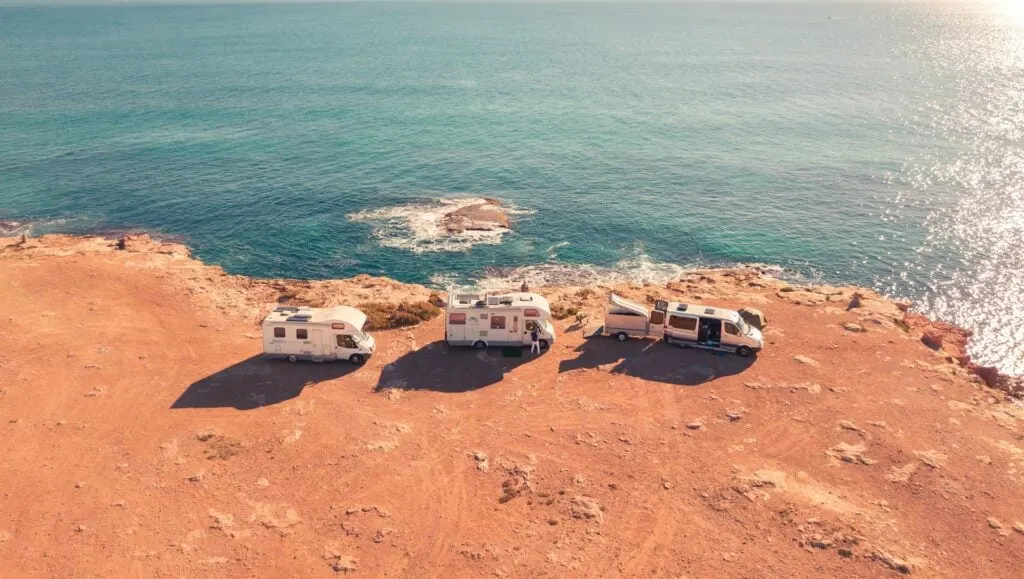
Choosing between an RV and a camper van can be a tough decision. Both offer unique advantages and cater to different types of travelers. Whether you’re planning a cross-country road trip or a weekend getaway, the right choice depends on your preferences and travel needs.
Let’s break it down to help you figure out which one suits your adventure style.
1. Space and Comfort: More Room or Cozy Nooks?
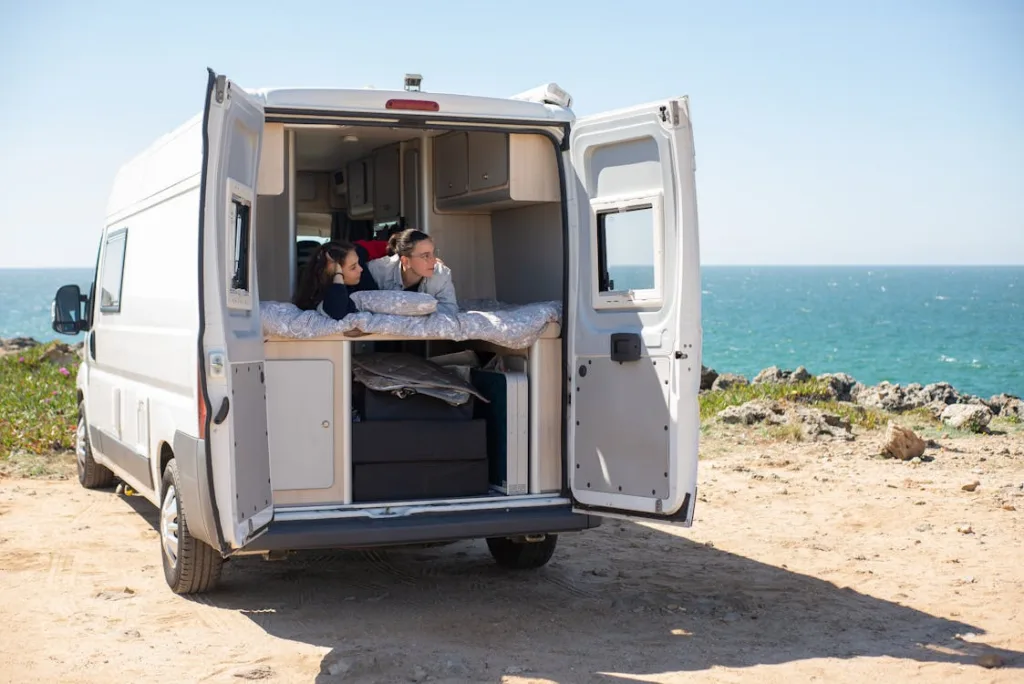
Space and comfort are key when deciding between an RV and a camper van. RVs resemble small apartments on wheels, offering full-size kitchens, separate bedrooms, and bathrooms, making long trips more comfortable.
While more compact, camper vans excel in efficiency and coziness. They have essentials like a comfortable bed, a small kitchen, and often a bathroom— making them perfect for those who value a minimalist lifestyle and a snug, intimate space.
Ultimately, the choice depends on whether you prefer the spacious interiors of an RV or the cozy efficiency of a camper van.
2. Cost Differences: Budget-Friendly or Splurge-Worthy?

When it comes to cost, the choice between an RV and a camper van can make a big difference in your budget.
RVs are often a bigger investment upfront, with prices ranging from $50,000 to over $200,000 depending on size and features. Plus, they can be more expensive to run. Lower fuel efficiency and the need for larger parking spaces can add up, making RVs a splurge-worthy option for those who want extra space and luxury.
Camper vans, however, are usually more budget-friendly. You can find new models for $30,000 to $100,000, and they tend to be much more fuel-efficient, often getting up to 20 miles per gallon or more.
This means lower ongoing costs for gas and maintenance. Parking is also easier and cheaper, making camper vans a great choice for travelers looking to save money without giving up the essentials.
3. Maintenance Needs: High Maintenance or Low Key?

Maintenance is key when deciding between an RV and a camper van. With their complex systems and larger engines, RVs often require more upkeep.
This includes regular checks on plumbing and electrical systems and more extensive engine maintenance. It’s like maintaining a small house and a large vehicle simultaneously. Repairs can be costly and time-consuming if something goes wrong, making RVs a high-maintenance option.
Camper vans, on the other hand, are much simpler to maintain. With fewer systems, they typically require less frequent and less expensive maintenance. This means more time enjoying your travels and less time dealing with repairs. Camper vans are an ideal choice for those who prefer a low-key approach to upkeep and want to spend more time on the road than in the repair shop.
4. Fuel Efficiency: Gas Guzzler or Frugal Friend?
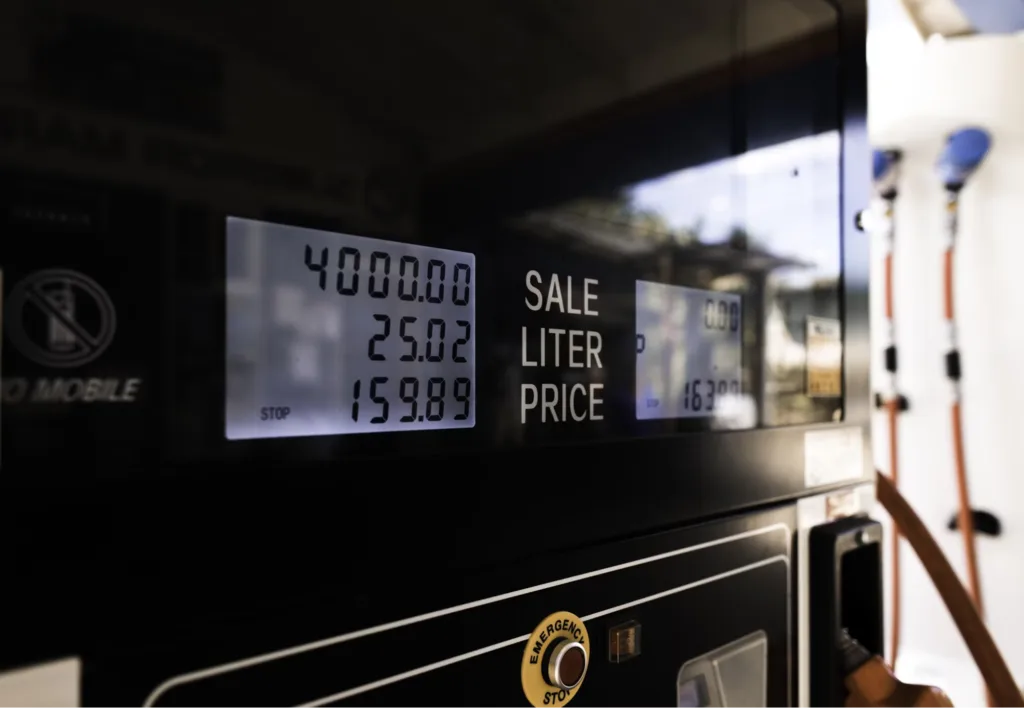
Due to their size and weight, RVs are notorious gas guzzlers. They typically get around 6-10 miles per gallon, which can add up quickly on long trips. This means more frequent stops at gas stations and higher travel costs. The bigger fuel expenses can be a significant drawback for those planning extensive journeys.
Camper vans, however, are much more frugal. They are lighter and smaller, often achieving up to 20 miles per gallon or more, making them a more economical choice for frequent travelers.
Camper vans are the clear winner for budget-conscious, eco-friendly adventurers. They save money on gas and reduce their environmental footprint.
5. Maneuverability: Smooth Sailing or Tight Turns?

Maneuverability is a significant factor to consider. With their large size, RVs can be challenging to navigate through narrow streets and crowded areas. Parking can also be a hassle, requiring larger spaces and more planning.
In contrast, camper vans handle more than regular vehicles. Their smaller size makes it easier for them to drive in cities, park in standard spots, and navigate winding roads. This makes camper vans a better choice for those who want smooth sailing without the stress of managing a big rig.
6. Lifestyle Suitability: Long Hauls or Weekend Getaways?
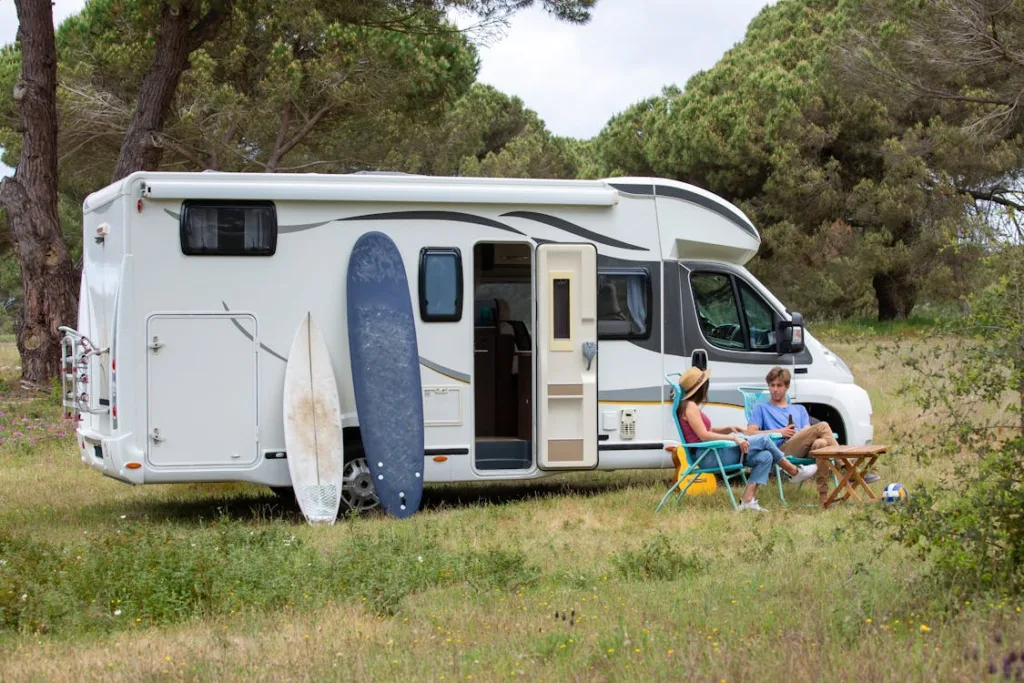
When it comes to lifestyle suitability, RVs and camper vans cater to different needs. RVs are ideal for long hauls and extended stays, offering ample space and all the comforts of home, making them perfect for full-time travelers.
Camper vans, however, are better suited for weekend getaways and shorter trips. Their compact size provides flexibility and ease of travel, making them great for spontaneous adventures.
Whether you’re planning long-term travel or quick escapes, the right choice depends on your travel style and needs.
7. Storage Capabilities: Pack Rat or Light Traveler?

Storage capabilities can make or break your travel experience. RVs offer ample storage space for all your gear, from bikes and kayaks to clothes and kitchen supplies. This is perfect for pack rats who like to bring everything along for the ride.
Camper vans, however, encourage a more minimalist approach. With less storage space, you’ll need to pack only the essentials, which can be liberating and help keep your space organized.
A camper van is the ideal option for those who prefer to travel light and keep things simple.
8. Off-Road Performance: Stick to Pavement or Go Anywhere?
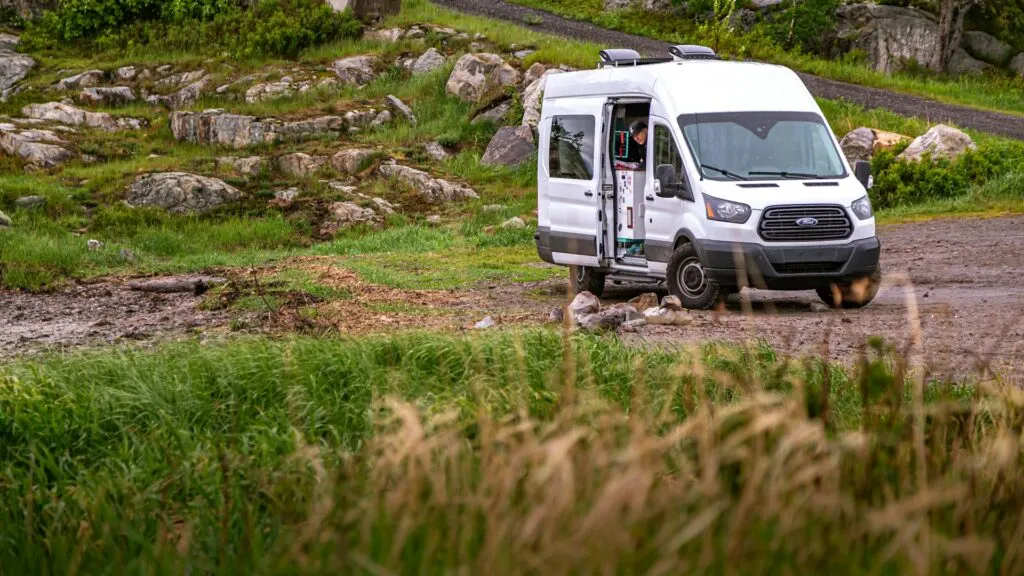
Off-road performance is crucial for adventurous travelers. RVs, built for comfort on paved roads, struggle with rough terrains and narrow dirt paths. Their size and weight make them less suitable for off-road adventures.
Camper vans, however, often excel in off-road conditions. Many models come with four-wheel drive and rugged features, allowing you to explore remote locations and venture off the beaten path. A camper van is the better choice if you crave the freedom to go anywhere.
9. Resale Value: Long-Term Investment or Quick Turnaround?
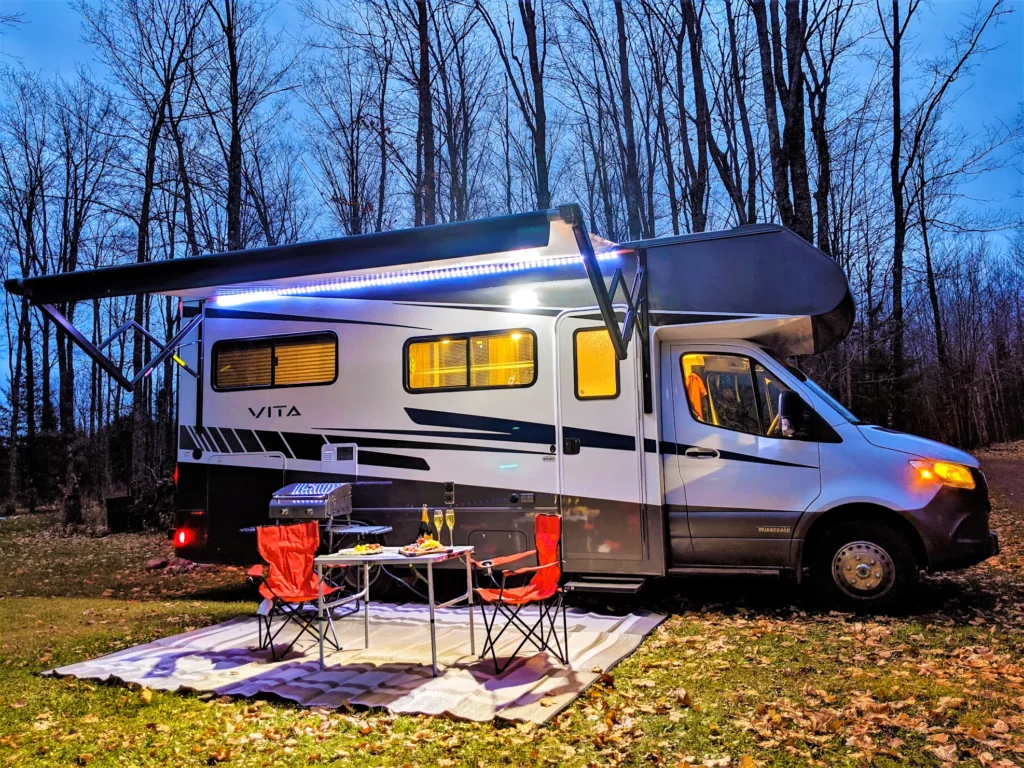
Considering resale value is essential when choosing between an RV and a camper van. RVs generally hold value well, especially if maintained properly, making them a solid long-term investment.
Camper vans also have good resale value due to their growing popularity. Their lower initial cost and high demand make them easier to sell quickly if you upgrade or change your travel style.
Whether looking for a long-term investment or a quicker turnaround, both options offer strong resale potential.
10. Accessibility Features: Fully Equipped or Basic Essentials?
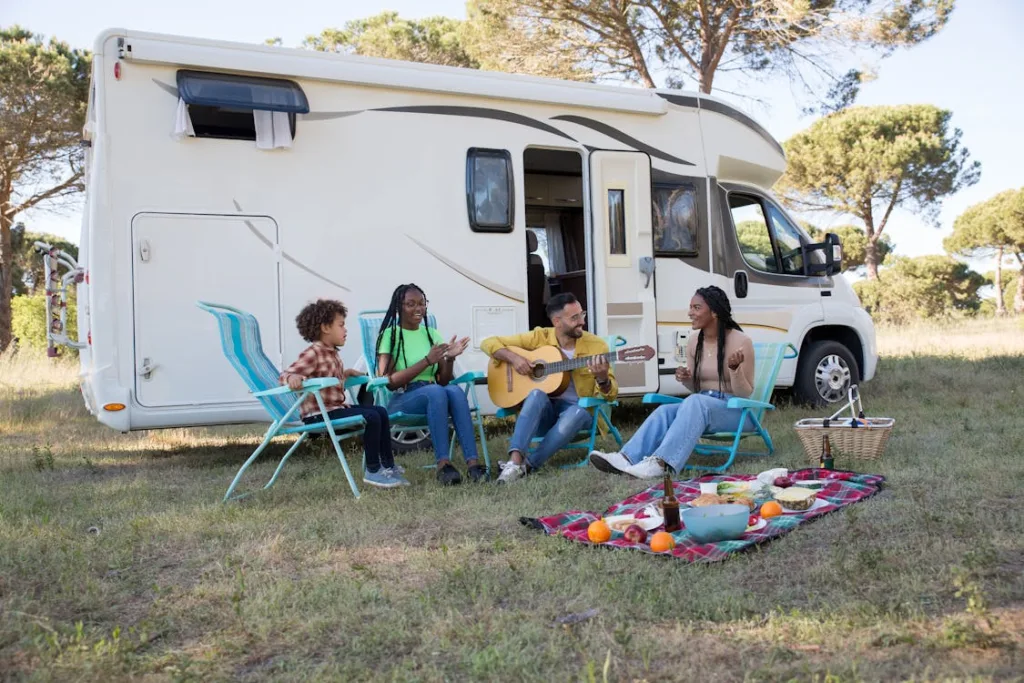
Accessibility features are important for many travelers. RVs often come fully equipped with wider doorways, ramps, and more space for mobility aids, making them ideal for those with mobility issues or disabilities.
Camper vans, being more compact, might offer fewer accessibility options. However, many can be customized to improve accessibility, fitting essentials into a smaller, more manageable space.
If accessibility is a top priority, an RV might be the better choice, but camper vans can still be adapted to meet specific needs.
Final Thoughts: Which One Fits Your Adventure Style?
Choosing between an RV and a camper van depends on your travel preferences. An RV is your best bet if you need space and comfort for long-term travel but a camper van might be the perfect fit for flexibility, fuel efficiency, and off-road adventures. Both offer unique benefits, so consider what matters most to you before making a decision.
